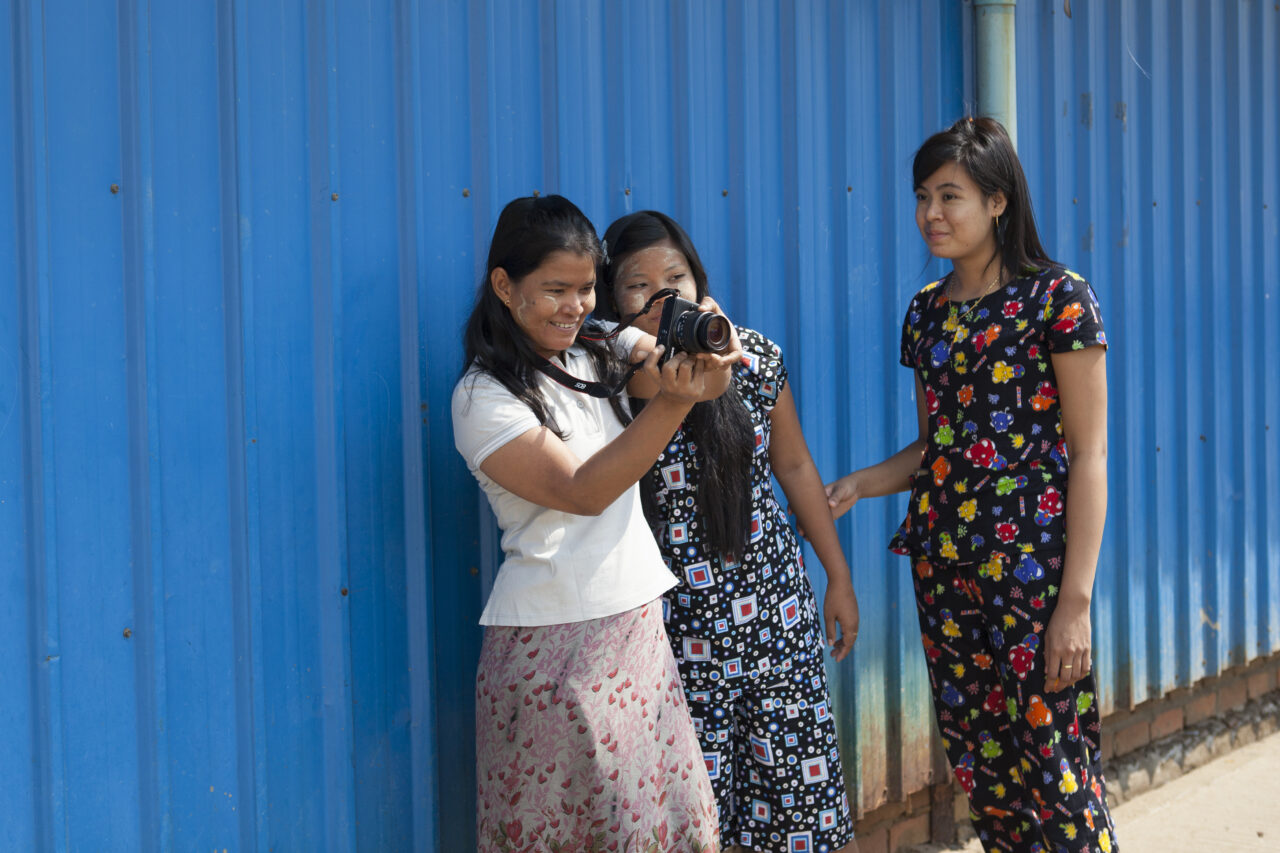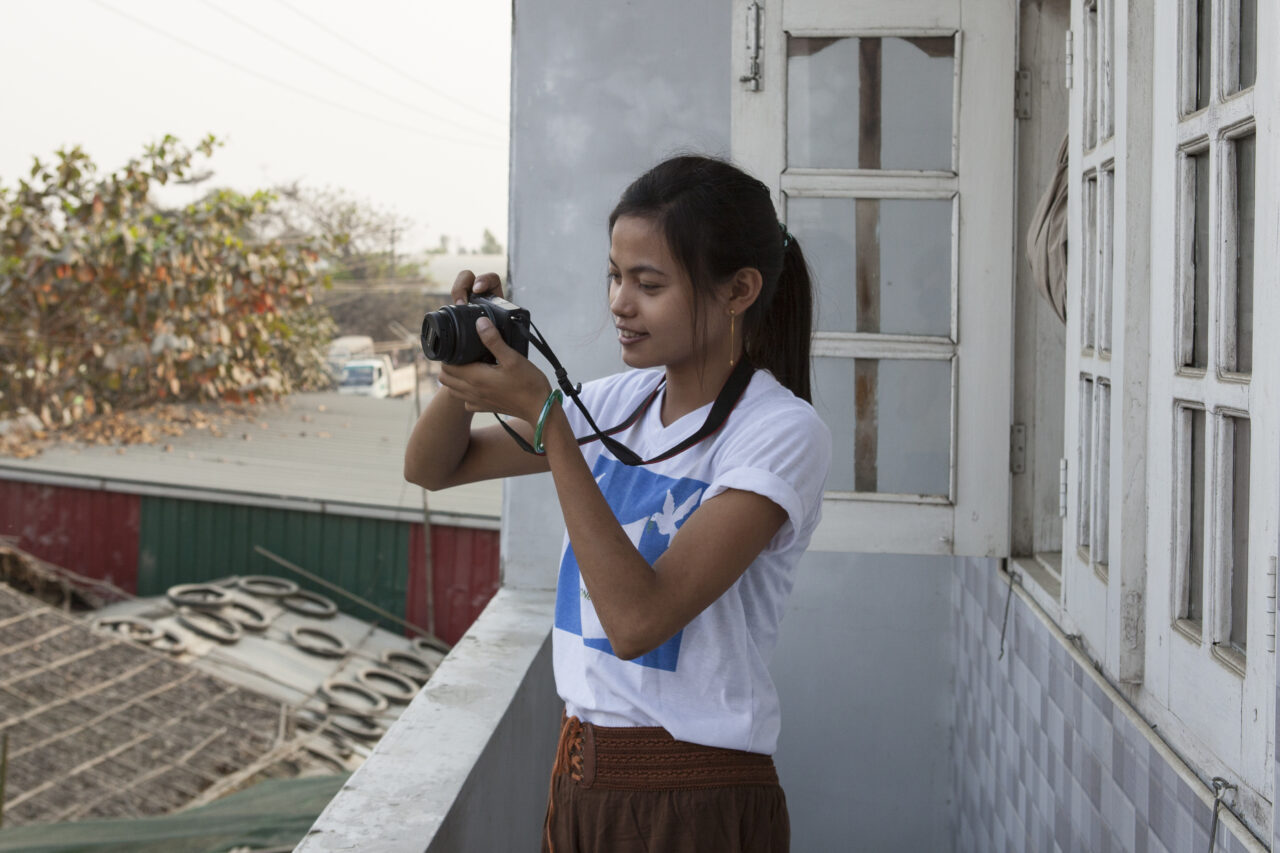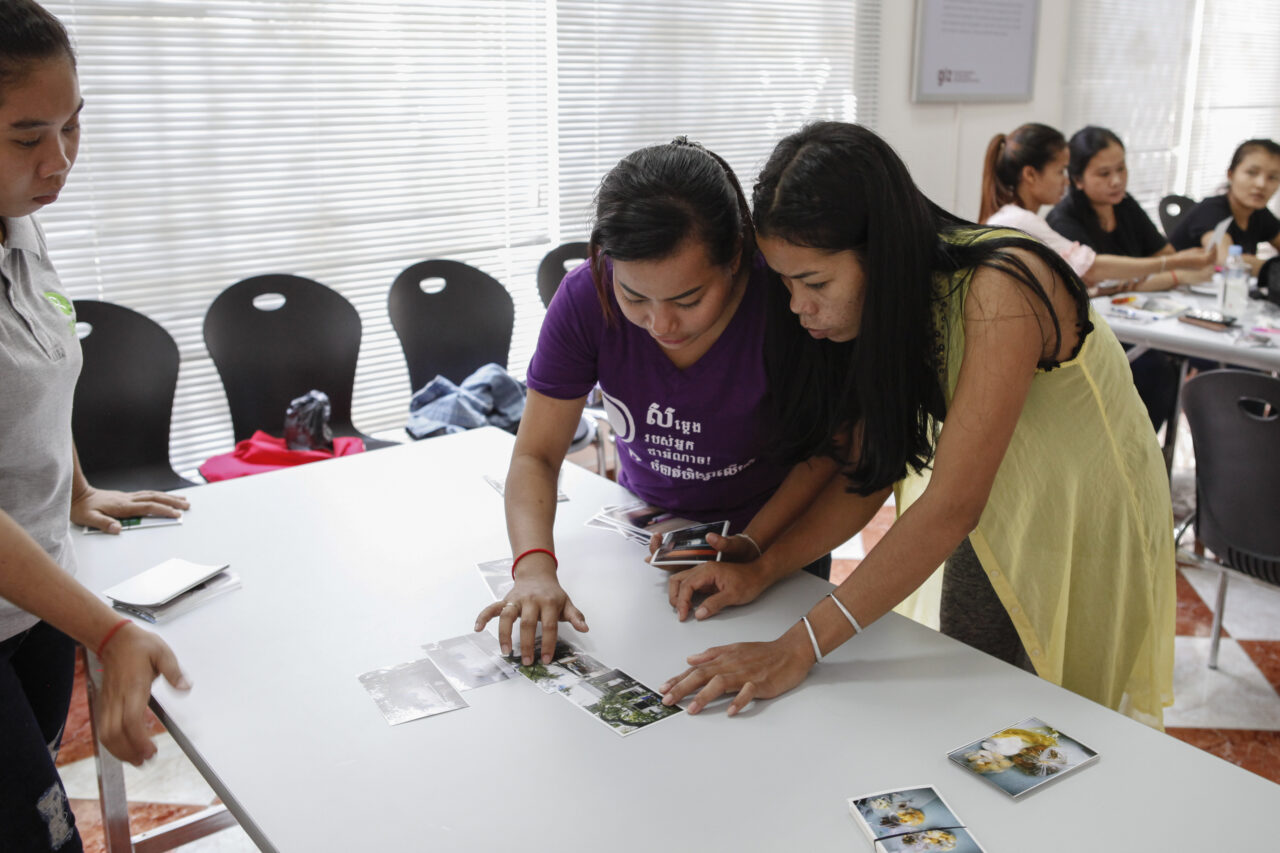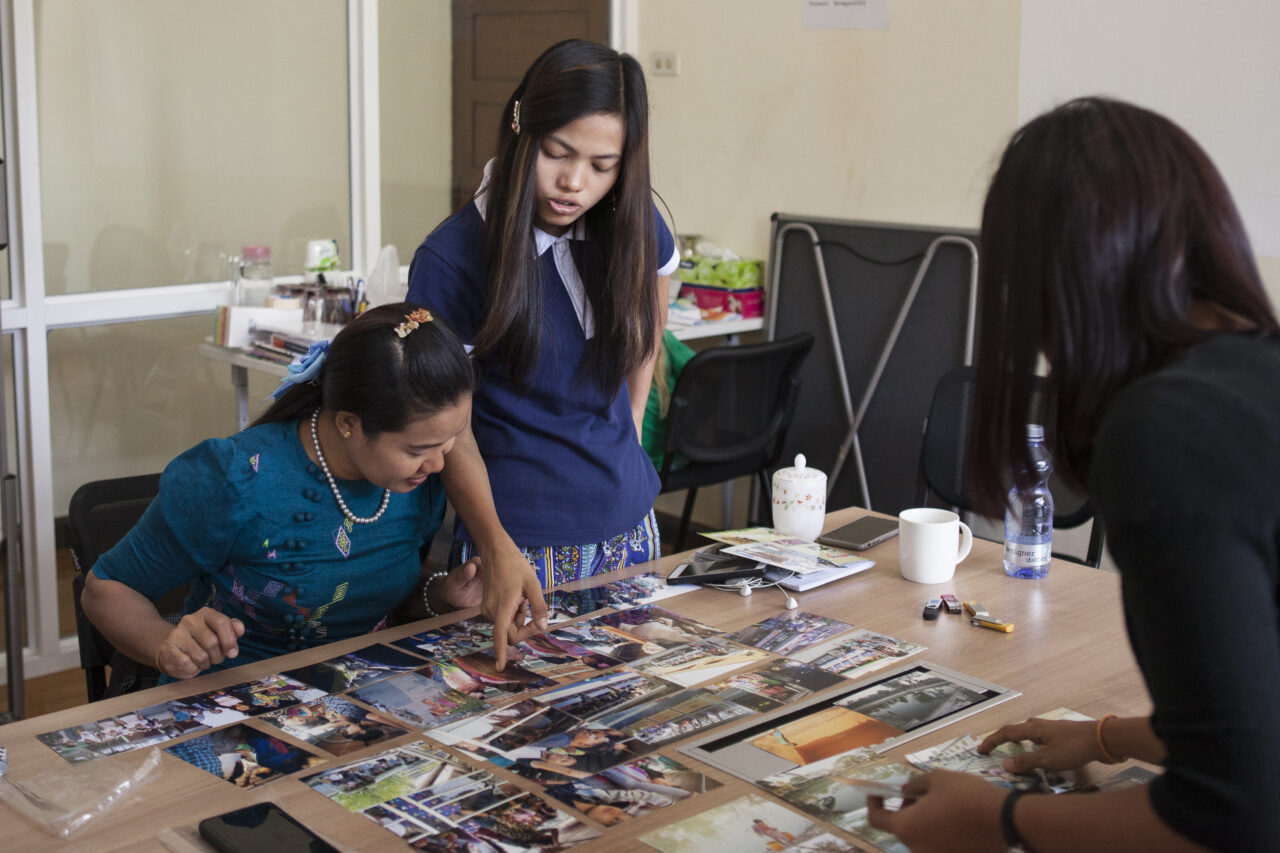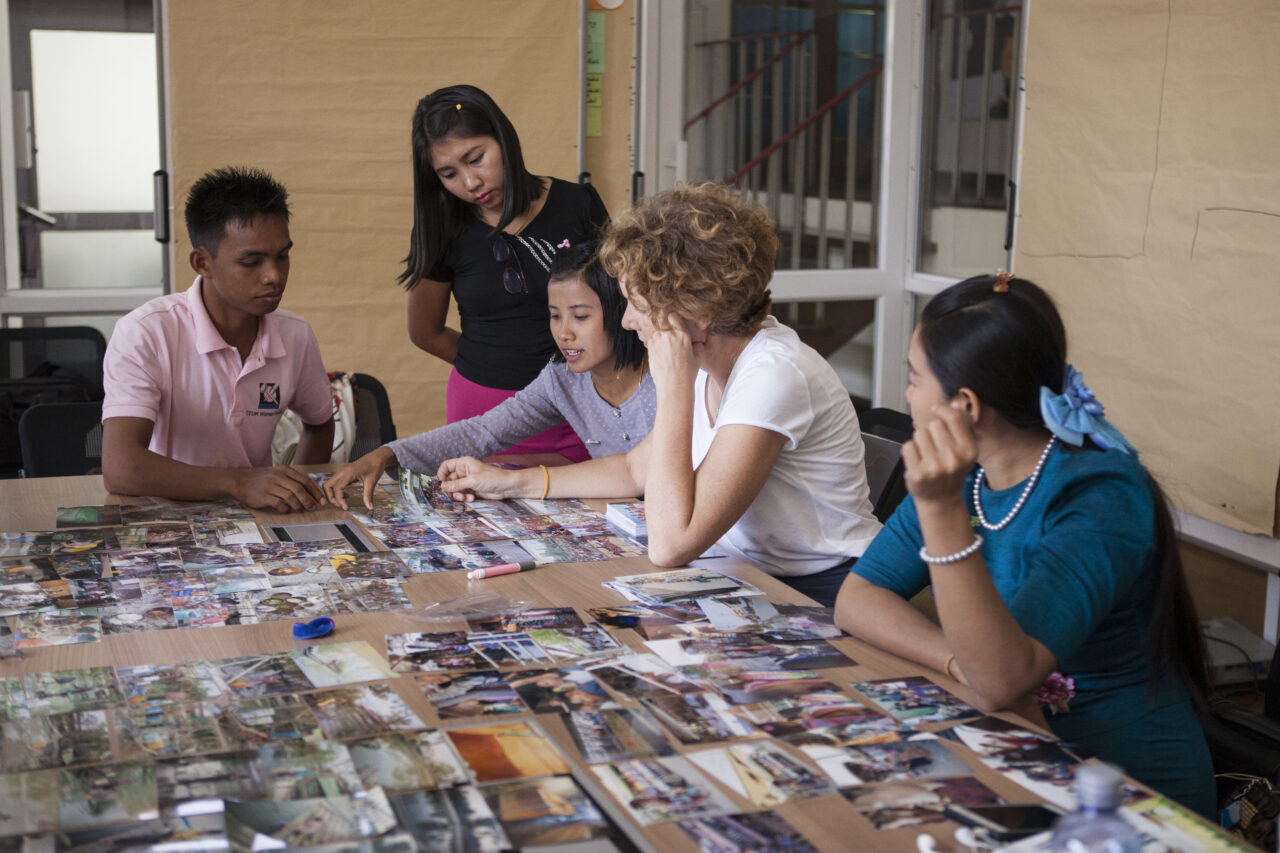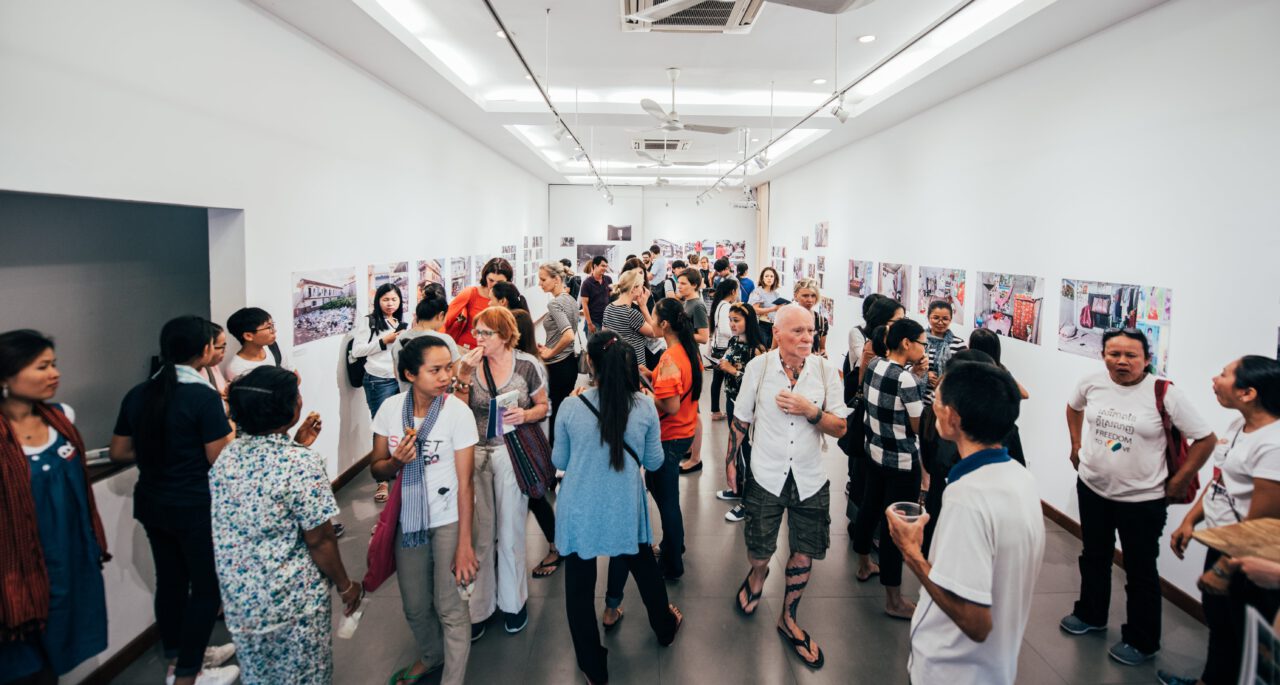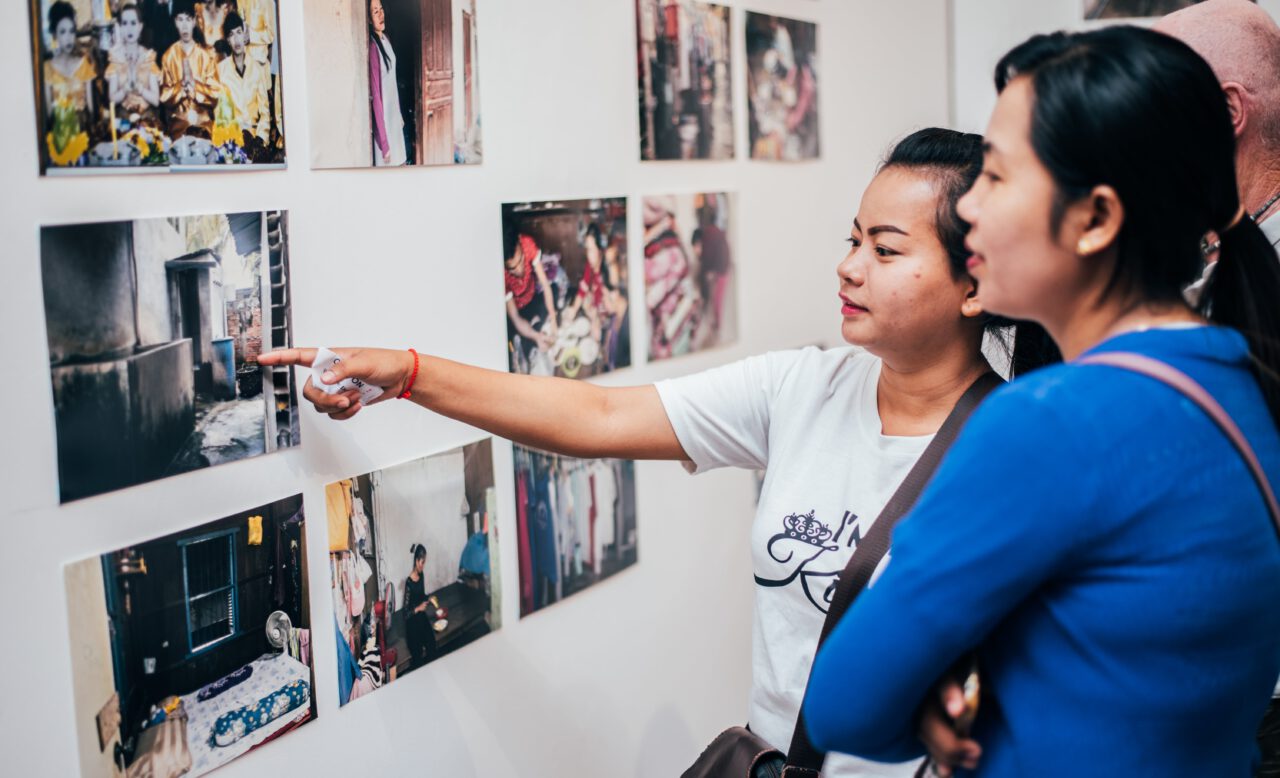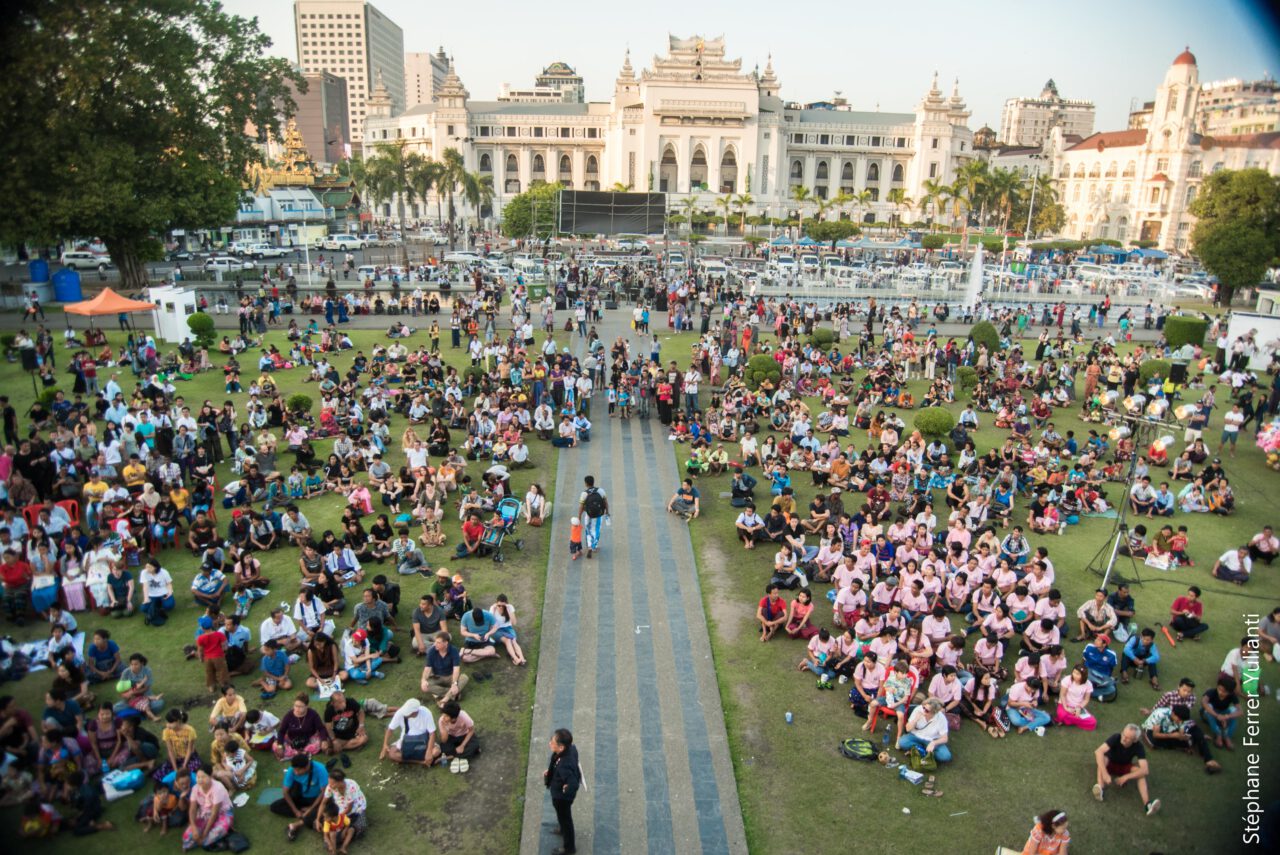The working and living conditions of the garment workers in Asia are known to the globalized world by two types of relatively homogeneous pictures circulating in the media: Many photos present concentrated, motivated female garment workers. By contrast, the others show workers who are injured, killed or protesting for their rights.
What these pictures do not show is the very heterogeneous realities in the daily lives of the garment workers. How are they seeing their reality? What issues related to their living and working conditions are they considering being important? How do they want to be represented to the outside world?
To enable female workers to tell their own story and thus for moving beyond stereotypes, the GIZ FABRIC programme implemented a Participatory Photography Project. Irene Genzmer, advisor at FABRIC programme, together with acclaimed photographer Andrea Diefenbach, designed a workshop, where 20 garment workers from Cambodia (in cooperation with the Workers’ Information Center) and Myanmar (in cooperation with Thone Pan Hla and the CTUM Women Center) were shown how they can use photography as a tool for communication.
The workers developed picture series that reflect on their life situation, revealing their look at the world and picturing their thoughts, emotions and dreams. Through these pictures, the audience can see life through their eyes, and the women have a tool for advocacy at hand which serves as a catalyst for social change to their advantage.
The pictures have been shown at several exhibitions in Cambodia, Myanmar and Germany, e.g. at the META House Cambodian-German Cultural Association in March 2018 and at the 11th Yangon Photo Festival in February 2019.
When the Covid19 pandemic disrupted global economic flows in 2020, the apparel and textile industry was hit hard. Many garment workers in Asia lost their jobs or earned only half of what they had earned before. In the videos featured in the VIDEO BLOG, four women workers in Cambodia and Myanmar show how they are coping with the situation. They have been instructed by photographer Connor Wall (Cambodia) and Pyay Kyaw Myint (Myanmar).

